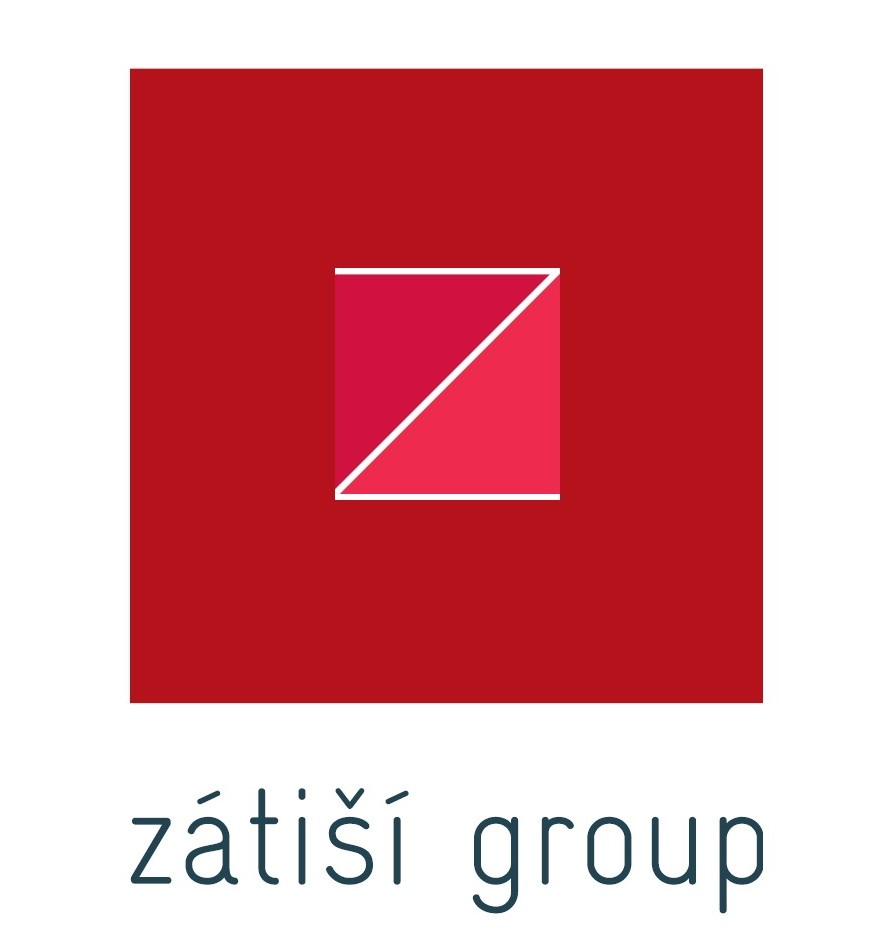Autumn legislative storm in income tax
18.10.2010Company: Amcham
The Ministry of Finance prepared a draft amendment to the Income Tax Act and the related regulations. This draft has recently been subject to modifications which have arisen from the comment procedure when some proposals, unfavourable for taxpayers, were removed (e.g. the proposal to cancel the tax privilege for employee benefits, toughening of the financial leasing conditions, etc.). Although the amendment may undergo some more modifications during the legislative procedure, we would like to now inform you of selected major changes which the amendment proposes to introduce. The amendment should come into effect from 1 January 2011.

End of exemption of income from ecological sources
The amendment cancels the exemption of income from ecological sources and equipment. Unlike the original intentions, this change will relate to the sources and equipment scheduled to be put into operation from 1 January 2011 (before, the date of 1 January 2012 had been proposed). This does not apply to any projects which had already been put into operation by the end of 2010 and the exemption shall still apply to them in its current form. Legal persons claiming the exemption will be obliged to claim the maximum tax depreciation and this will not be subject to change. This duty does not apply to individuals.
Component depreciation
The amendment proposes that the Act include a reaction to the recent change in the accounting regulations which allows for the component depreciation method to be used in accounting. Although this topic has been discussed in a rather complicated manner for quite a long time, the amendment seems to contain the least favourable solution for the relationship between the accounting and tax recording of depreciation. The amendment proposes to use the tax base ascertained without the effect of this accounting method for tax purposes. In practice, this would mean keeping, in fact, two separate registers of assets and rather complicated modifications of the accounting profit or loss.
Expenses in the event of a breach of conditions
The amendment introduces a new system for costs claimed in previous years where tax deductibility conditions were breached during the current tax period. It will not be necessary to file additional tax returns for the next tax period. All non-deductible expenses will be taken into consideration in the tax return for the period in which the conditions were breached and no penalty for the late payment of taxes shall be imposed.
Interest on a mortgage loan in the event of a breach of conditions
Another objective of this amendment is to simplify deductions of interest on mortgage loans which were used to purchase land but only in the event of a failure to meet the conditions of constructing a housing facility within four years of the date of signing a loan agreement or the purchase of land. The aim of the new legislation is not to require filing of additional tax returns in these cases but to use the long established regime, e.g. when the conditions of pension insurance with the state contribution or private life insurance are not met, i.e. to increase the tax base as income pursuant to Section 10 of the Income Tax Act in the year when these conditions were breached by loan interest payments which, thus far, had been claimed illegally and thereby impose no penalty for a late payment of tax.
Leasing
By rephrasing the existing provision of Section 24 (4) (a) it is proposed that the amendments would determine a minimum period for leasing tangible assets which are classified in the fourth and fifth depreciation group and were purchased through financial leasing and that this minimum period would be equal to the minimum periods of the asset depreciation, i.e. 20 and 30 years respectively. Before, such minimum periods were only determined for tangible fixed assets classified in the first, second and third depreciation groups and for real estate. The new legislation, amended as of the date of this Act coming into force, shall apply to situations when a leasing contract is made or a subject of lease is ceded in a condition fit for use from 1 January 2011 onwards.
Section 25 (1) (ze) proposes to enable the relevant party to claim the compensation fee from the tax base in the event of an assignment of a leasing contract (i.e. the difference being the amount paid by the new lessee to the former lessee in the event of an assignment of a leasing contract which exceeds the amount of the rental equivalent paid to the ne lessee which has, so far, been unclaimed rent by the former lessee) which is in the form of tax deductible depreciation if such amount, in accordance with the accounting regulations, becomes a part of the entry price of the assets.
Deduction of non-taxable amounts by non-residents
Although the explanatory memorandum is silent about this issue, the amendment tacitly extends the limit for deductions of non-taxable amounts by non-residents if they fail to meet the specific condition of having 90% of their income coming from a source located in the Czech Republic to all the non-taxable amounts, and not only for the interest on loans used for housing purposes, as it was previously.
Depreciation of a receivable
The proposed change of Section 24 (2) (y) specifies the conditions for tax deductible depreciation of receivables. It shall no longer be bound to the current use of statutory provisions, but now only to prohibit the depreciation of receivables (a) acquired free of charge and (b) arising between related persons. This creates the possibility to write off a receivable with a balance sheet amount exceeding CZK 200,000 upon its creation which is not dealt with at court, yet meets all of the other conditions required for creation of tax provisions.
Lump sum travel expense
The provision of Section 24 (2) (zt) has been complemented and specified in the context of the proposals discussed in the Coordination Committee last year (Document No. 281/16.09.09). The provision has been specified and complemented in such way that it is now no longer possible to claim expenses from business trips and a lump sum travel expense at the same time.
- In the event of co-owners, it has been proposed to supplement the Act in such a way that it is clear that each party cannot claim the full amount of the lump sum travel expense, but only a proportionate part, or, as the case may be, one co-owner can claim the actual expenses and the other can claim the proportionate part of the lump sum travel expenses.
- In addition, it has been proposed to clearly define that lump sum expenses for one vehicle cannot be changed to actual expenses during a tax period and, at the same time, it has been proposed to solve the problem regarding a newly acquired vehicle or a vehicle put out of operation in a month by using the proportionate part of the lump sum expenses.
- It also proposes to solve the interpretation problem of "not entrusting a vehicle to a third person" by providing a clear definition of who may be given the use of a given vehicle for business trips.
- The legal fiction in the third sentence of (zt) allowing for at CZK 5,000 a month claim for vehicles not used exclusively to generate, ensure and maintain taxable income has been removed. With regard to these vehicles, an entrepreneur may follow the previous regulation, i.e. if he uses several vehicles for both business and private purposes, he shall be entitled to use the reduced lump sum expense for each vehicle.
- It has been explicitly proposed to define what amount cannot be claimed as tax expense because this term has not been defined. It is also proposed that only parking fees on business trips are excluded from tax expenses.
Market rental charged to trade unions
The amendment proposes to cancel the exemption which has allowed employers to charge some other than the market price for the provision of rooms and related equipment against payment to trade unions. Tax authorities will therefore be authorised to change the tax base, i.e., most likely, to increase the taxable income of those taxpayers who will lease the premises to trade unions for a lower price than one which is common in the market.
Reduction of tax reliefs for working pensioners
The amendment also reduces the amount of tax relief for working pensioners as the Act constantly allows for the fact that disbursed retirement and other pensions are exempt up to the value of 36 times the minimum salary valid as of 1 January of a calendar year. A procedure has been proposed, if a working pensioner’s sum of income, pursuant to Section 6 of the Income Tax Act and partial tax bases pursuant to Sections 7 and 9 of the Income Tax Act, exceeds CZK 840,000 in a calendar year, the entire amount of the received pension will be subject to tax.
Contribution to the pension scheme
In order to ensure compatibility with EU primary law, it is proposed that the exemption on behalf of the employees of values up to CZK 24,000 a year be extended to also include contributions to pension insurance paid in favour of an employee with pension insurance from any institution and not only the contribution made to supplementary pension insurance with a state contribution. What is meant by a pension insurance institution has been newly defined by the Act. In addition, the deductibility of a taxpayer's own contribution of up to CZK 12,000 a year has also been extended to include the pension insurance without a state contribution.
Specification of the regulation concerning the super-gross salary
Considering the discussions regarding the determination of the “super-gross” salary for employees who do not fall under the domestic state insurance system either in full or in part, it has now been unequivocally defined that the super-gross salary shall also apply to those parties whose payments of the mandatory premium does not follow a special regulation of the Czech Republic statute or whose payments are, in full or in part, subject to mandatory foreign insurance of the same kind and this regulation shall not apply, for example, to income resulting from agreements to complete a job.
Private life insurance
The amendment also removes undesirable aspects of some “motivation insurance” products from private insurance companies, often used by employers who, instead of contributing to employees’ income, contributed to the private life insurance schemes for these employees to avoid taxation of their salaries.
Gifts to persons in the EU
With respect to gifts for individuals or legal entities within the EU, the amendment removes the questionable provision under which the purpose of a gift should have been assessed in accordance with the regulations of the respective foreign country. This will unify the methods of proving of foreign and inland gifts and significantly simplify the proving of the purpose of the gift.
Tax allowances
The allowance of 50% on tax payments which has so far been possible for taxpayers employing at least 25 employees and where the percentage of handicapped employees was more than 50% of the average converted number of all employees will now be cancelled. The reason for cancelling this provision is to prevent the increasing abuse of this allowance by employers. Other allowances for the handicapped in the amount of CZK 18,000 per handicapped employee and of CZK 60,000 per severely handicapped employee will be preserved.
The amount of allowance per taxpayer will be reduced by CZK 1,200 per year, i.e. from the current CZK 24,840 to CZK 23,640.
The tax allowance for a child will be reduced by CZK 240 a year, i.e. from the current CZK 11,604 to CZK 11,364.
Tax prepayments report
In addition to the annual statements for income tax, a new obligation placed on employers will be to file monthly reports on tax prepayments which have been withheld and paid. An employee’s application for a refund of tax credits previously paid will make up a section of this report. The money will be refunded to the employer within 20 days of filing such a report. It will no longer be necessary to file the application on separate forms as it has been previously.
It is obvious that many of these changes will affect the financial planning and tax management of most payers and tax payers. We will continue to observe this legislative procedure and inform you of further development.
Please note that this summary of amendments is not exhausting. If you are interested in more details regarding the above mentioned, or any other changes, in the tax legislation, please do not hesitate to contact your advisor in TACOMA.
Jaromír Zbroj, Head of TACOMA Tax
Mobil: +420 731 411 268
E-mail: jaromir.zbroj@tacoma.eu
www.tacoma.eu








